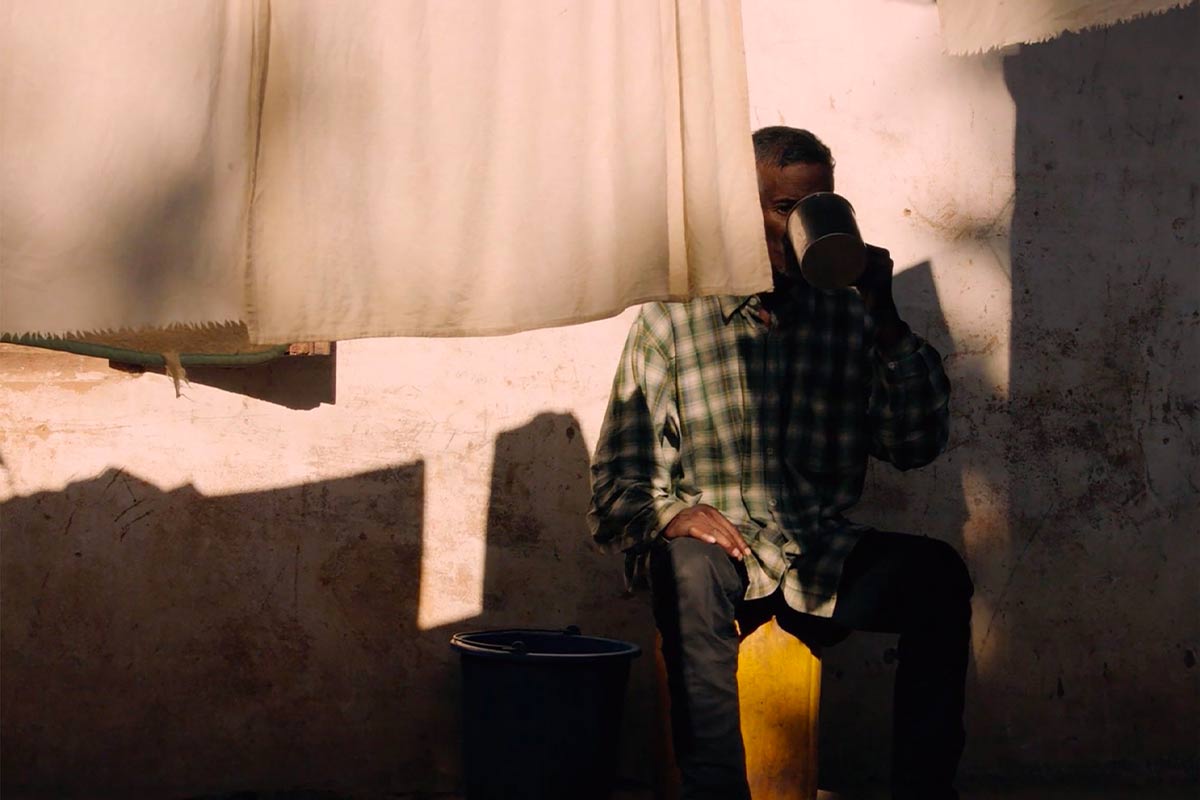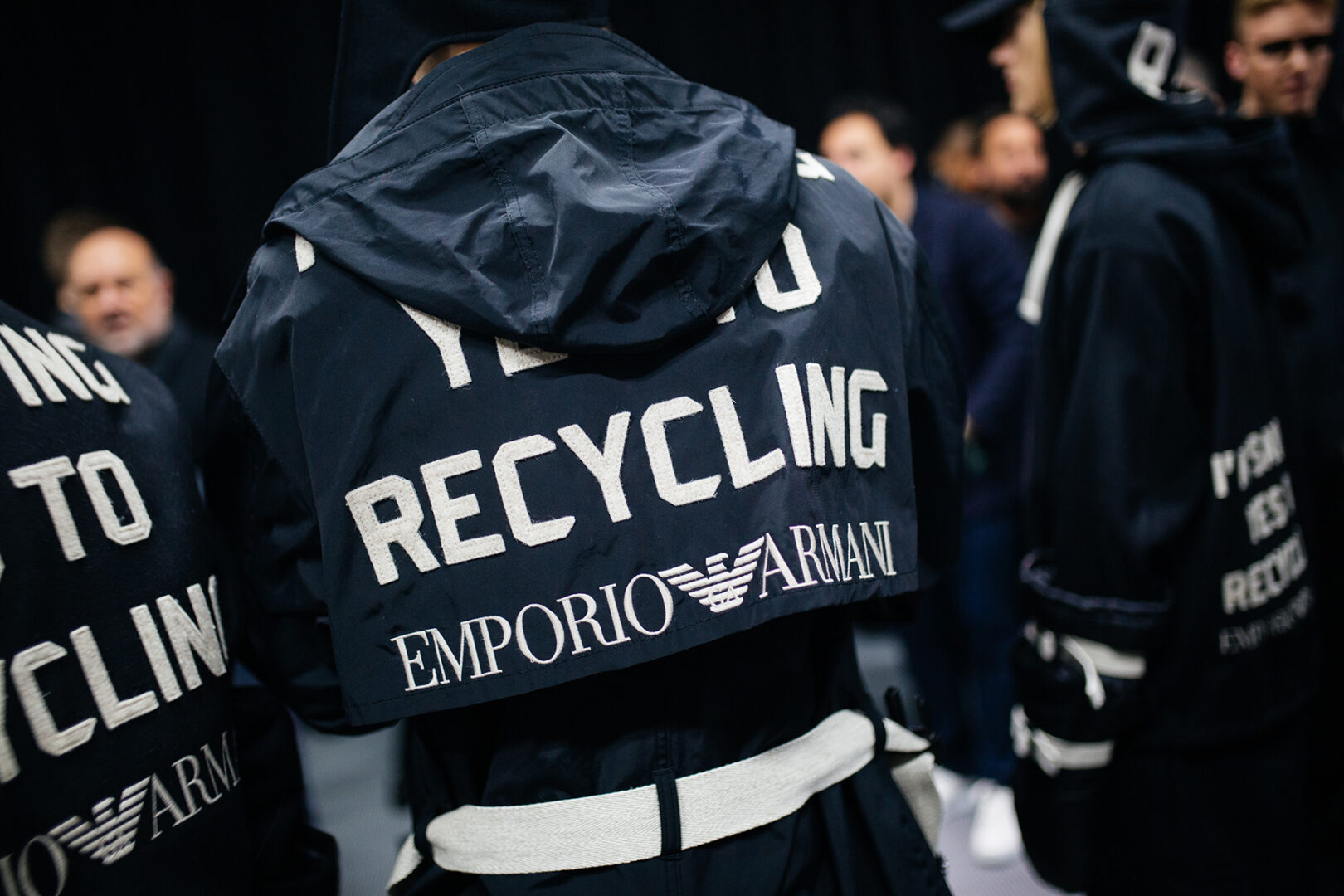Overview, People, Planet, and Prosperity. The Armani Group’s commitment to tackle market’s needs but also to improve the quality of life of all stakeholders (employees, society and government)
Giorgio Armani Foundation – to ensure a stable governance
With over eight thousand employees worldwide, six hundred sales points, six production sites in Europe and Asia and 1.594 million euros in economic value generated. The Armani Group is focused on three key brands: Giorgio Armani, Emporio Armani, and A|X Armani Exchange among the other branches of the business that covers beauty, hotellerie, food, flowers and interior design. In 2016, Giorgio Armani founded Giorgio Armani Foundation to ensure that the Armani Group’s governance core principles remain stable over time, based on autonomy and independence, an ethical approach to management, and a focus on innovation, prioritizing the development of the brand.
The Armani Group’s commitment to sustainability is expressed in five areas: customers, supply chain, environment, human resources, and community. In 2021, to strengthen this governance on the issue of sustainable and responsible development, the Group also established the Sustainability Department and a Strategic Committee to approve the sustainability plan and ensure its integration with the business strategy.
In support of this project – on the occasion of the Earth Day on 22nd April 2022, the Group also launched Armani/Values. This synthesizes all the values underlying the brand endeavors to social and environmental sustainability policies, with a focus on Corporate Responsibility. The project consists of three main sections: People, Planet and Prosperity, preceded by the introductory Overview page.
Sustainable development, a concept introduced in 1987 by the World Commission on Environment and Development. It encompasses these three dimensions of human well-being. Social justice, environmental preservation, and economic prosperity. The initiatives by Armani Group fall, therefore, into the domain of Corporate Social Responsibility. The company’s ongoing commitment to behaving ethically and contributing to the improvement of the quality of life of all stakeholders and the society in which they operate.
Armani/Values: People, Planet, and Prosperity overview
The Overview focuses on the Group in its entirety. From the three flagship brands to lifestyle, from Armani/Silos to Hotels & Resorts to Restaurants. It includes a comprehensive timeline starting with the company’s founding in 1975, as well as programs and commitments on issues such as sustainability, ethical choices, and agreements. Also, it features the Sustainability Report. An annual resource published since 2018 with main results achieved in terms of sustainability; renewable resources usage; and future objectives integrated into the business strategy.
People – Armani’s human capital
Moving to the three main sections, People is dedicated to Armani’s human capital. This illustrates the brand’s work environment mapped through the number of employees; the places where the Group is present, locations and production facilities; but also training, growth, and care for diversity.
According to the Armani/Values project and the 2020 Sustainability Report, Armani People Care includes welfare tools that have been adapted to the needs that emerged during the pandemic of the past two years. By adapting the services offered to the needs of employees and the introduction of the Diversity & Inclusion (D&I) role. Created within the Human Resources Department to coordinate strategies and activities aimed at raising awareness about the topic. In fact, in 2021, the Armani Group placed second in Europe in the annual Diversity Leaders Ranking. Established by the Financial Times based on an assessment of employee perceptions regarding inclusion in the workplace.
Planet – reforestation and biodiversity conservation endeavors
The Planet section includes the initiatives supported by the Armani Group, including reforestation – in partnership with WWF but also Forestami in Milan – and biodiversity conservation, the care of the supply chain and production locations, the choice of materials, collaborations, and interventions for the territory.
According to the report, the goal is to reach the use of 25% raw materials that meet specific sustainability criteria by 2025. To raise the quality standard of the Group’s suppliers by 2030. To reach these goals, the Armani Group has set up a monitoring process through audits to verify compliance with the environmental and social codes of conduct. This was signed at the time of signing the contract. In the three years 2018-2020, 51% of suppliers were verified through audits.
In 2020, the ASP Protocol (Armani Sustainability Project) was established to select sustainable raw materials. An analysis of the certifications acquired by the Group’s suppliers showed that 45% of them have at least one of those mentioned in the ASP Protocol.
Prosperity page is the section that brings together Giorgio Armani’s projects, local and international. To enhance the social and cultural heritage with charitable initiatives, support for research and new business models, and donations. The section tackles different areas of interest, such as Community, Cultural Heritage, Research, and commitment to Future Generations.
Activities that over the years featured programs such as Acqua for Life. To provide universal access to water in regions affected by shortages. With support to entities such as Opera di San Francesco, Comunità di Sant’Egidio, Save the Children, Fondazione Veronesi, Humanitas, and Fondazione Teatro Alla Scala. In 2021, the Armani Group was named a Founding Supporter of Milan’s Teatro Alla Scala Foundation.

Armani and Science-based targets initiative
According to reports, 60% of sustainability claims by fashion brands are misleading when not actual greenwashing. In a market where sustainability has become a marketing strategy; in 2021, in line with the level of decarbonization required to prevent the effects of climate change, the Armani Group defined concrete targets, approved by the Science Based Targets initiative (SBTi), to reduce overall greenhouse gas (GHG) emissions. The targets aim to limit global warming to below 1.5°C, as envisioned by the Paris Agreement.
The objectives set by the Group are reducing GHG emissions by 50% by 2030 from a 2019 base year and reducing GHG emissions. From purchased goods and services and downstream transportation and distribution by 42% by 2029 from a 2019 base year. «Sustainability must be adopted across the board. By producing less and better; selecting raw materials with a low environmental impact; implementing innovative processes; reducing waste and rejects; using renewable energy sources and reducing emissions», states Mr. Armani on Armani/Values website.
To collect and disclose the SBTi- approved data and metrics concerning sustainable efforts, since 2018 the Group shares a public accountability report, the Sustainability Summary. This document, according to the European Union directive 2014/95/EU, have to contain information related to environmental matters; social matters and treatment of employees; respect for human rights; anti-corruption and bribery; diversity on company boards.
Since a company’s profit is optimized with the implementation of strategic financial management functions; by making policies that influence financial decisions positively influencing the company’s social value. Such a report also helps them to raise awareness of other factors besides the interests of investors, namely the interests of stakeholders (such as employees, society and government).
Armani Group sustainability report 2020
According to Armani Sustainability Report 2020, five pillars guide the Corporate Responsibility approach in Armani. Namely Responsible Management of the Supply Chain; Environmental Protection and Efficient Use of Resources; Employees’ Well-being, Customer Care and Support, and Involvement of Communities.
Talking about responsible consumption and production, the Group commits to improving environmental performance by optimizing resources. Transitioning to renewable energy, sorting waste, and staff awareness of environmental protection issues. Emissions are closely related to the Group’s energy consumption, which decreased by4 percent compared to 2019 and to corporate travel.
They are measured in tons of carbon dioxide equivalent (tCO2e). According to the 2020 internal report, it decreased by about 2 percent: due to office and store closures, reduced corporate travel. Along with the use of energy from renewable sources for some Group locations.
The commitment of the Armani Group to renewable energy
Also, it has been reported an increase in coverage of energy needs with renewable sources. For example, in 2020, the headquarters, thanks to the photovoltaic system on its roof since 2014, self-produces a portion of its electricity needs, which during 2020 was about 13% higher than in 2019.
On the collections side, the Armani Exchange brand has committed to selecting materials recycled and organically sourced. This effort led to the achievement of 16% of sustainable items in the women’s Fall Winter collection 2020; along with signing in 2019 the the Fashion Pact. An international initiative with a view to defining a common path leading to reduction of the sector’s environmental impact. This aims to use energy from renewable sources, subscribe to the Science Based Targets, and reduce the consumption of plastic packaging by seeking alternative solutions.
Corporate Responsibility – Armani Group
Since 1996, the Armani Group has made Corporate Social Responsibility, a key pillar of its strategy. Thanks to the first recycled denim jeans, that was displayed at the Innovation Show at the Museum of Science and Technology in Milan. Specific initiatives, that have strengthened, rather than diluted, the brand’s imagery.
This first milestone was then followed in 2003 by the CA-RI-FE award for the reintroduction of textile hemp into the Italian fashion industry. The establishment of the Corporate Social Responsibility department in 2013. The publication of codes of conduct and the first social and environmental supply chain audits in 2014.
In the following years, Armani Group has strengthened its efforts toward sustainability; adopting a fur-free policy in 2016. From the Fall/Winter 2022/2023 season, the Group added angora wool to the list of materials excluded from its fur-free policy. Also introducing the Sustainability Reports since 2018, till the launch of Armani/Values project in 2022.
Armani/Values sums up all the Armani Group’s activities about Corporate Social Responsibility, Sustainability, and Human Value. Besides acting as a collector for a process that began back in 1996 with recycled jeans; the project responds to market requests for more transparency and commitment. With 77% of consumers stating that efforts to improve the environment and society contribute to their purchase decisions.
Armani
The history of Armani began in 1975, when Giorgio Armani and Sergio Galeotti established Giorgio Armani S.p.A. Since then, the brand has expanded including 11 brands and the Giorgio Armani Foundation. In 2022 Armani/Values was launched to synthesize the values that have always underpinned the designer’s style actions and entrepreneurial choices.



















